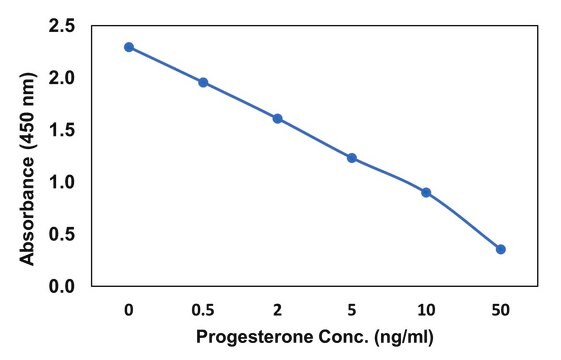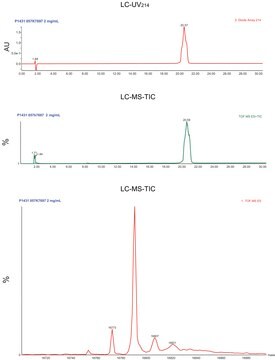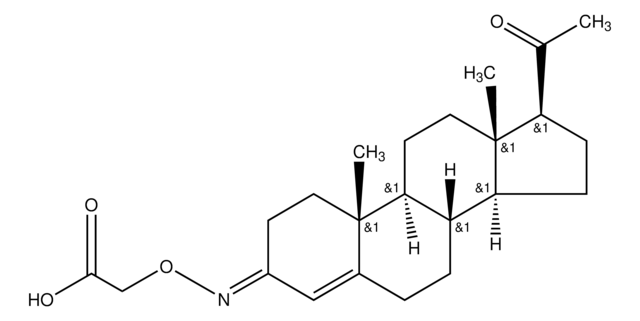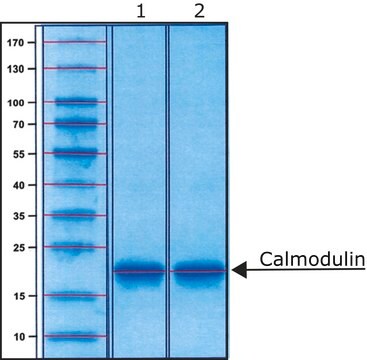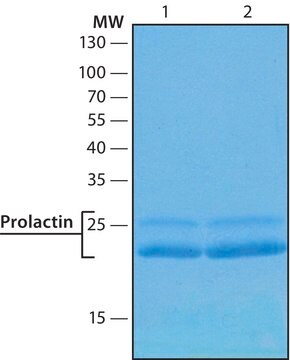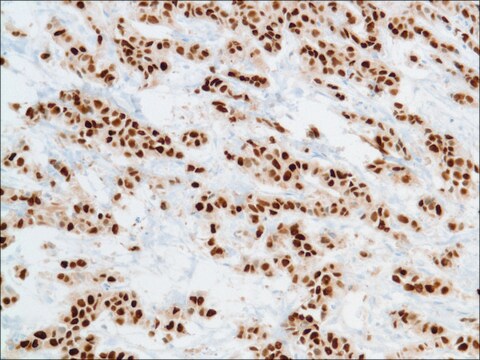P1922
Monoclonal Anti-Progesterone antibody produced in rat
clone 2H4, tissue culture supernatant
Se connecterpour consulter vos tarifs contractuels et ceux de votre entreprise/organisme
About This Item
Conjugué:
unconjugated
application:
ELISA (i)
RIA
RIA
Clone:
2H4, monoclonal
Technique(s):
indirect ELISA: 1:1000 - 1:2000 (using Progesterone-BSA for coating.)
radioimmunoassay: suitable
radioimmunoassay: suitable
citations:
10
Produits recommandés
Source biologique
rat
Niveau de qualité
Conjugué
unconjugated
Forme d'anticorps
tissue culture supernatant
Type de produit anticorps
primary antibodies
Clone
2H4, monoclonal
Technique(s)
indirect ELISA: 1:1000 - 1:2000 (using Progesterone-BSA for coating.)
radioimmunoassay: suitable
Isotype
IgG1
Conditions d'expédition
dry ice
Température de stockage
−20°C
Modification post-traductionnelle de la cible
unmodified
Catégories apparentées
Description générale
Progesterone or P4 (pregn-4-ene-3,20-dione) is a female steroid hormone that belongs to the hormones class, progestogens. It is produced by majorly by ovaries, adrenal glands and placenta of humans and other species. Progesterone derived from placenta and corpus luteum is required for the maintenance of pregnancy. Progesterone inhibits the T cell mediated immune response involved in tissue rejection. The progesterone levels in females are low before ovulation and are elevated during the luteal phase. Monoclonal Anti-Progesterone antibody is IgG1 isotype purified from rat cell culture supernatant.
Immunogène
progesterone-7-BSA.
Application
The antibody may be used in various immunochemical techniques including ELISA, radioimmunoassay AND RIA to measure progesterone levels in milk.
Remarque sur l'analyse
dextran coated charcoal 3H RIA.
Clause de non-responsabilité
Unless otherwise stated in our catalog or other company documentation accompanying the product(s), our products are intended for research use only and are not to be used for any other purpose, which includes but is not limited to, unauthorized commercial uses, in vitro diagnostic uses, ex vivo or in vivo therapeutic uses or any type of consumption or application to humans or animals.
Vous ne trouvez pas le bon produit ?
Essayez notre Outil de sélection de produits.
Code de la classe de stockage
10 - Combustible liquids
Classe de danger pour l'eau (WGK)
nwg
Point d'éclair (°F)
Not applicable
Point d'éclair (°C)
Not applicable
Faites votre choix parmi les versions les plus récentes :
Déjà en possession de ce produit ?
Retrouvez la documentation relative aux produits que vous avez récemment achetés dans la Bibliothèque de documents.
Diana Sorg et al.
Journal of dairy science, 100(10), 8205-8219 (2017-08-15)
The objectives of this study were (1) to analyze the agreement of a standard laboratory ELISA for progesterone (P4) with an automated on-farm ELISA kit operated under commercial conditions in 1,297 milk samples from 50 dairy cows; (2) to study
Aenne Honnens et al.
The Journal of reproduction and development, 57(1), 43-48 (2010-10-19)
The objective of this study was to investigate the relationships between uterine perfusion and estrogen, progesterone and the uterine nitric oxide synthase (NOS) system in five trotter mares during the estrous cycle. Color Doppler sonography for measurement of uterine blood
Yinqiu Wu et al.
Steroids, 67(7), 565-572 (2002-05-09)
A series of progesterone-4-ovalbumin (OVA) conjugates with different length linkers (4-, 11-, and 18-atoms long) were synthesized by successive aminocaproic acid homologation of 3-(pregn-4-ene-3,20-dione-4-yl)thiopropanoic acid (1) before conjugation to ovalbumin. The performance studies of these progesterone-4-ovalbumin conjugates showed that the
B C Braun et al.
Theriogenology, 71(5), 754-761 (2008-11-18)
Diagnosis of pregnancies is an important management tool for the Iberian lynx Conservation Breeding Program, a program geared to recover the world's most endangered felid. Non-invasive methods such as fecal hormone analyses are not applicable to the lynx, since fecal
Kim Carnaby et al.
Reproduction (Cambridge, England), 144(4), 477-484 (2012-07-26)
Lynx presents a unique sexual cycle with persistent corpora lutea (CLs) and elevated serum progesterone (P₄) throughout parturition and lactation. In other mammals, CLs normally disintegrate after parturition, therefore the aim of our study was to characterise the annual life
Notre équipe de scientifiques dispose d'une expérience dans tous les secteurs de la recherche, notamment en sciences de la vie, science des matériaux, synthèse chimique, chromatographie, analyse et dans de nombreux autres domaines..
Contacter notre Service technique